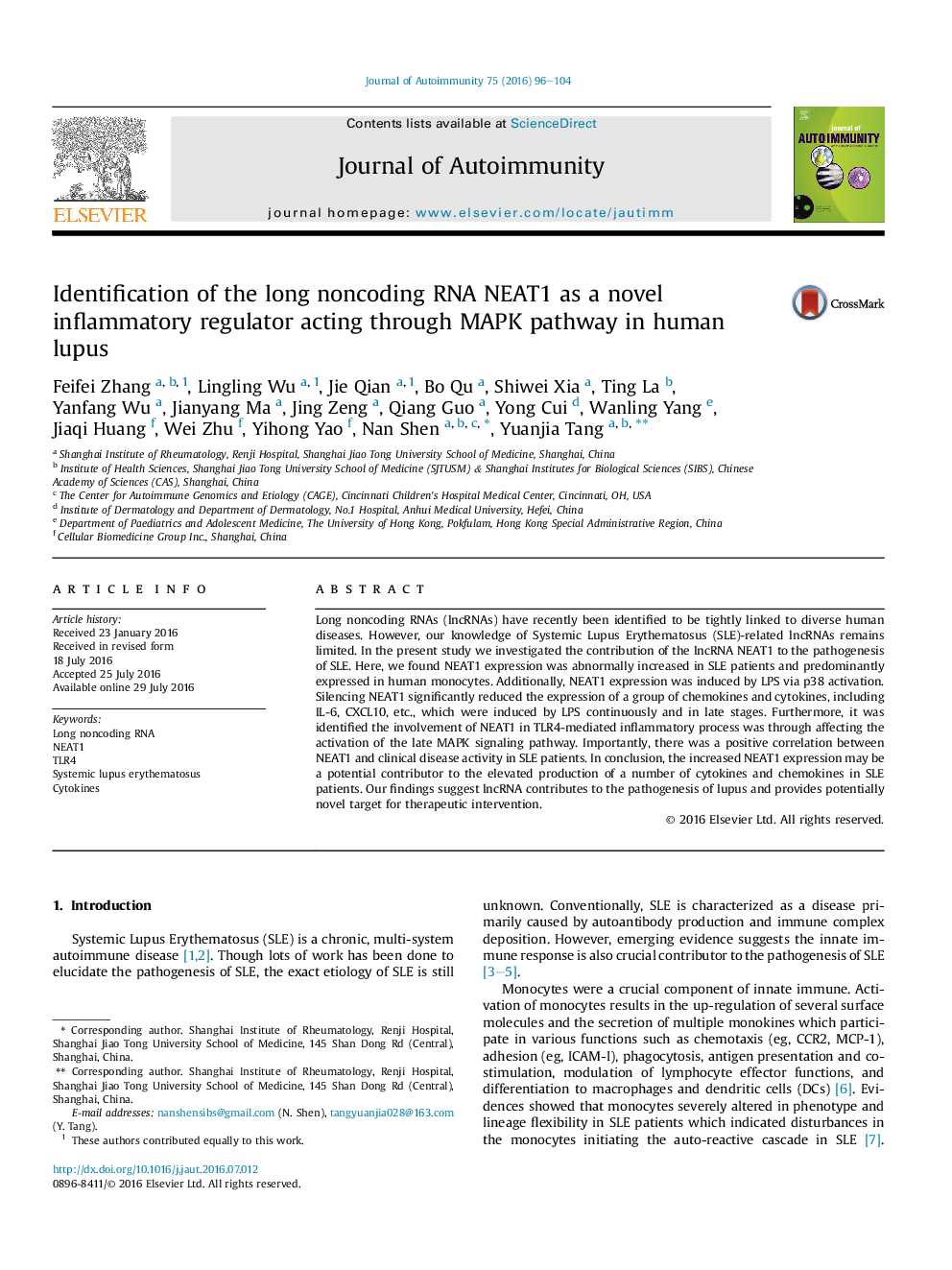| Article ID | Journal | Published Year | Pages | File Type |
|---|---|---|---|---|
| 5667952 | Journal of Autoimmunity | 2016 | 9 Pages |
â¢Long noncoding RNA NEAT1 is an early-response gene in response to innate immune ligand and its abnormal expression is associated with SLE patients.â¢NEAT1 plays an important role on regulating TLR mediated inflammatory pathway and the expression of a group of chemokines and cytokines.â¢We also emphasize the clinical implication by showing the correlation of NEAT1 and disease activity and clinical manifestations in SLE patients.
Long noncoding RNAs (lncRNAs) have recently been identified to be tightly linked to diverse human diseases. However, our knowledge of Systemic Lupus Erythematosus (SLE)-related lncRNAs remains limited. In the present study we investigated the contribution of the lncRNA NEAT1 to the pathogenesis of SLE. Here, we found NEAT1 expression was abnormally increased in SLE patients and predominantly expressed in human monocytes. Additionally, NEAT1 expression was induced by LPS via p38 activation. Silencing NEAT1 significantly reduced the expression of a group of chemokines and cytokines, including IL-6, CXCL10, etc., which were induced by LPS continuously and in late stages. Furthermore, it was identified the involvement of NEAT1 in TLR4-mediated inflammatory process was through affecting the activation of the late MAPK signaling pathway. Importantly, there was a positive correlation between NEAT1 and clinical disease activity in SLE patients. In conclusion, the increased NEAT1 expression may be a potential contributor to the elevated production of a number of cytokines and chemokines in SLE patients. Our findings suggest lncRNA contributes to the pathogenesis of lupus and provides potentially novel target for therapeutic intervention.
